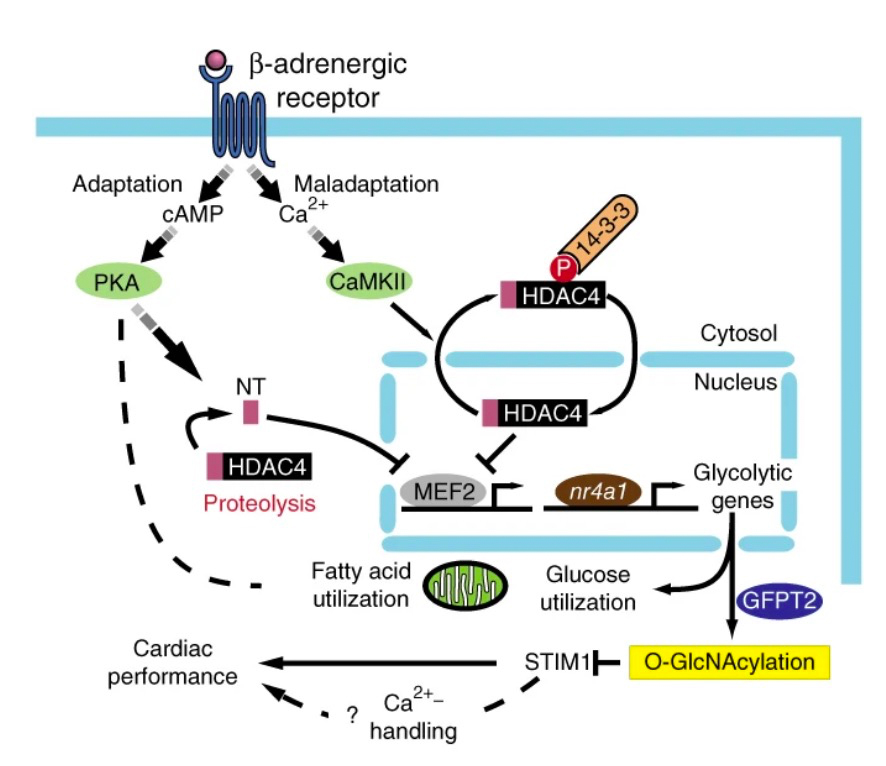Molecular Mechanism of anthracycline-induced cardiotoxicity – Our basic resarch has a focus on cardiac metabolism, epigenetics and cardio-oncology. Based on our previous work on histone deacetylases (HDAC), we study epigenetic consequences of cancer and cancer therapies on the heart. In particular, we are interested in the cardiac epigenetic alterations by anthracyclines and investigate cardiac consequences in different preclinical cancer models. This project is currently funded by the German Research Foundation (DFG).
Epigenetic memory of metabolic stress – In our previous work, we have found that epigenetic changes do not directly lead to transcriptional changes (->). More importantly, epigenetic alterations seem to predict further transcriptional response on cardiac stress. We have identified a large genomic region that is highly regulated upon metabolic stress (unpublished). Currently we investigate conditional genetic deletion of these regions to understand the biological effects of these epigenetic changes. This project is currently funded by the German Research Foundation (DFG).
Role of the cardiac Inflammasome in immune checkpoint inhibitor-associated myocarditis – By systematic analysis of the human cardiac transcriptome, we identified genes of the cardiac inflammasome as highly dysregulated in patients with myocarditis ->. We currently generate conditional preclinical models to investigate potential protective strategies for the treatment of cardiac inflammation.
Metabolic signaling of cardiac nuclear receptors – Based on our previous work, we have identified nuclear receptors to be important for the regulation of cardiac metabolic response. Currently we investigate the molecular pathways (binding partner and transcriptional regulation) of these receptors to understand and to manipulate ther physiological function.

In our ongoing projects we investigate the up- and downstream signaling pathways of nuclear receptors, and metabolic signaling on the cardiac epigeneome. Basis for our onging basic research question are based on mechanistic work on beta adrenergic signaling. Figure modified from Lehmann et al.
